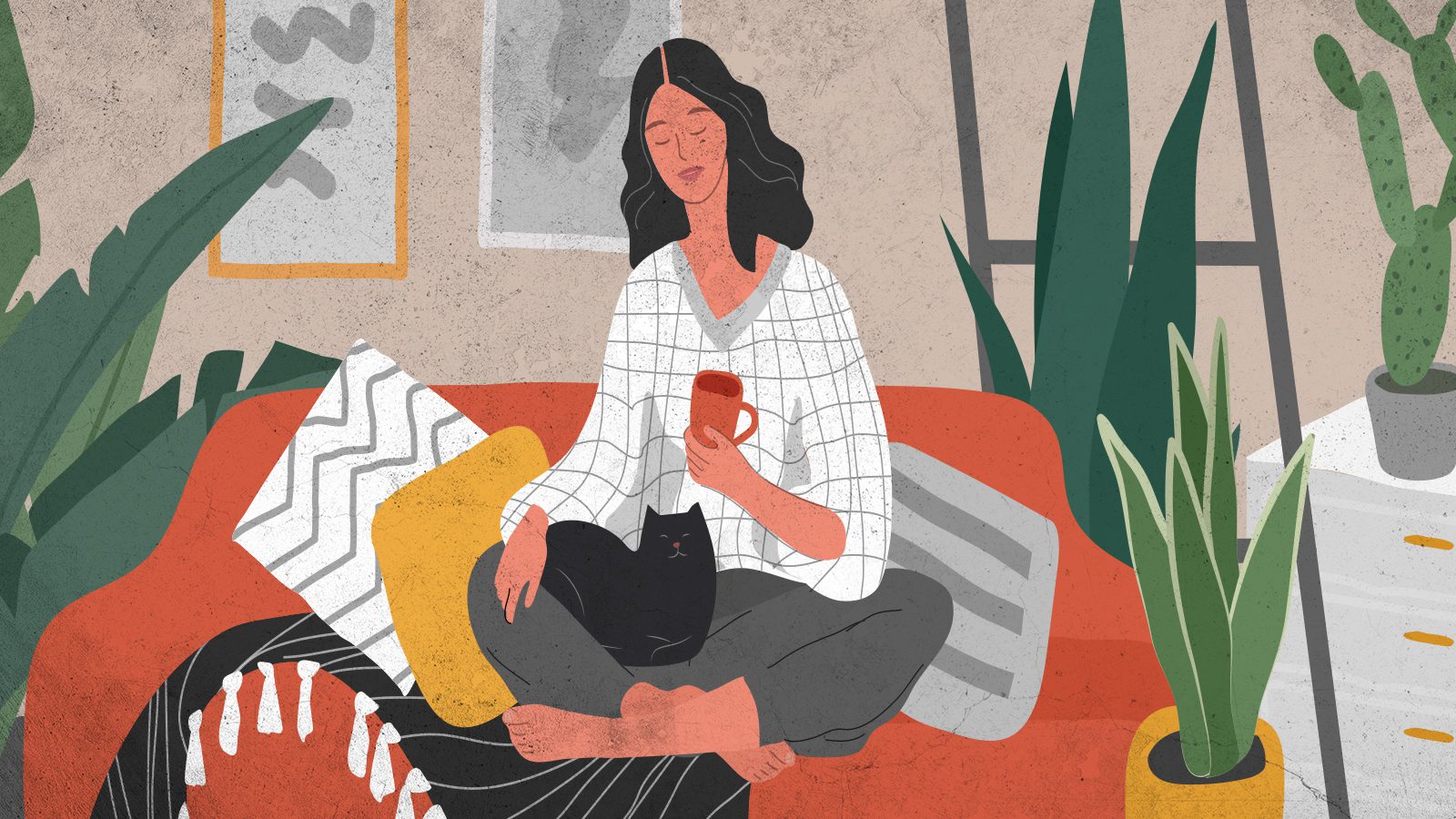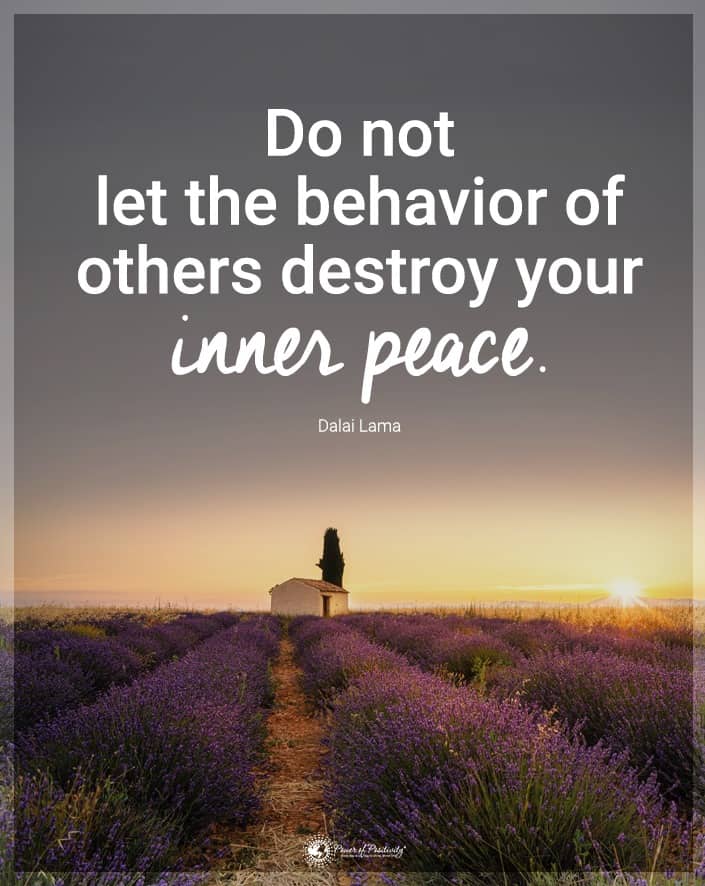There’s been a lot written about the harmful effects of loneliness. Social interactions and community can lower stress and even help you live longer. But being alone once in a while isn’t all that bad. It’s called solitude. Practicing solitude gives individuals more happiness and a better sense of their life. Solitude gives you time to reflect on your life experiences and learn about yourself. Here are seven habits to help you enjoy some much-needed alone time.
What’s the difference between loneliness and solitude?
There are two different ways to experience being alone-solitude or loneliness. Loneliness is a negative feeling associated with wishing you had more social contact. Solitude is a choice to disengage from being around people for a time. Studies show that individuals who understand the benefits of solitude have a more positive mood when alone.
7 Habits to help enjoy solitude

1 – Schedule time alone
It’s good to be part of a community where you know people and they know you. But sometimes you need to be alone. Keep a balance by including solitude in our daily schedule. Being alone is self-care that can help you solve problems, know yourself better, and give you a chance to relax.
2 – Start projects you enjoy
One way to establish a habit of solitude is by starting a project. Use your privacy to do a project you enjoy. Alone time gives you an inspiration to be creative or the ability to accomplish something. Finishing a project gives you a sense of accomplishment and success. Projects you can start may include:
- Take an online painting class or woodworking class
- Organize a closet
- Gardening
- Go out for lunch
- Ride your bike
- Test drive a cool car
- Go to a museum
3 – Be sure to keep a routine
Be sure to keep a routine that includes solitude. Having a pattern relieves your stress and makes life calmer. Regularly scheduled times with your friends and family help fight loneliness, but alone time is just as important. You may feel selfish or too busy to set aside time to be alone. Don’t overbook your schedule to the point you don’t have time for solitude. You need time to recoup and get a mental break from your busy life. Be sure to schedule time each week to:
- Get to bed on time
- Have time to relax
- Time to read a book or do a hobby
- Schedule things like house cleaning, running errands or doing other chores
- Schedule some open spaces to allow for spontaneity in your life
4 – Keep your thoughts positive
When you’re having your times of solitude, avoid allowing your thoughts to slip into negativity. Let your mind wander to the bad stuff going on is easy. Avoid rehearsing bad situations or stuff that bother you, like your argument with your teenager or your neighbor’s rude comment. Of course, solitude helps you solve problems, but if the time turns all negative, you must switch your focus to more positive things. Or, if you can’t get yourself focused, get busy on a project in your house or go outside to dig in the garden.
5 – Make self-care a priority
Face it, life is busy, and it’s hard to stop for a break. You may have family responsibilities, household chores, and community commitments. Even during a hectic schedule, it’s essential to practice good self-care. You may think you can function without times of solitude, but you won’t be at your best. You’re apt to be grumpy and tired, which can lead to burnout.
If you’re the kind of person who doesn’t stop, it may be time to do a redo. Start choosing self-care as a priority in your life. You don’t need to take long solitude breaks. Just 15 minutes every day by yourself with a cup of coffee out on the deck can help you regroup and allow your mind to relax.
6 – Get out in nature
Exposure to nature benefits your brain, reduces blood pressure, and improves mental health. Getting fresh air and sunshine even improves your sleep. Studies found a connection between nature and a lowered risk of cardiovascular disease. This is because you’re more physically active when you’re out in nature. This reduces your blood pressure and stress, making you less likely to have a healthier heart. Any outdoor activity is beneficial, whether at the beach, in the woods, or climbing the mountains. You can choose:
- Hiking
- Walking
- Riding your bike
- Gardening
- Running
- Tennis
- Pickleball
- Shooting a basketball
- Reading while sitting on the deck
7 – Solitude is a life choice
Solitude is a life choice. It’s not likely that someone else will schedule it for you. Hearing your thoughts and enjoying a little peace is more than a luxury when life is busy; it’s necessary. You must teach yourself the value and believe it’s essential for your mental health and self-care. You won’t make time for solitude if you don’t value it.
What are the benefits of solitude?
Here are some other benefits of solitude worth considering.
Solitude helps you have more compassion for others.
When you have time alone, you can relax and regroup. You let go of all your negative thoughts and solve problems that bother you. This “house cleaning” of your mind gives you a better capacity to think of others. Of course, there’s a fine line between selfishness and being others-oriented. But solitude isn’t selfish. It’s a healthy way to get yourself in a good place to help others.
Alone time increases your productivity.
Your productivity goes up when you get time by yourself. Just a little privacy helps you get things done. It allows you to be more creative when it’s quiet and you’re alone in your thoughts.
Solitude boosts creativity
When you get time by yourself without the noise of people and activities, it allows your brain to destress. You let go of all your busy thoughts. You can be outside by a lake or sitting on a sofa in your living room. Solitude gives your brain a chance to wander and dream. As you brainstorm, creativity flows. You can dream up a new vacation idea, a book you want to write, or a new recipe you want to try.
Alone time builds mental strength.
Humans are, by nature, social beings. Even if you have strong ties to people, you still need regular time alone. You’ll feel happier and have better mental strength when you’ve had time alone.
Time alone helps kids.
Kids who learn how to spend time alone can entertain themselves. When kids learn how to be alone, they know how to relax and enjoy the quiet.
Solitude helps you plan.
Life happens whether you have a schedule. You must feed your family, wash clothes, and complete hundreds of other tasks. If you don’t create a schedule, you’ll feel you’re just running from one thing to the next. Having alone time allows you to plan dental visits, playtimes for the kids and their friends, and shopping trips for school clothes.
Alone time gives you time to talk to God.
Historically, many religions emphasize the importance of solitude. Spiritual people understand the importance of being alone with God to pray and reflect on life. You can confess your shortcomings, thank God for your many blessings, or ask for wisdom and strength.
Time alone gives you an appreciation for the shortness of life.
An ancient poem says, So teach us to number our days that we may get a heart of wisdom. (Psalm 90:12 ESV). Numbering your days means you realize you won’t live forever. Because you sense this, you make wise choices about what’s essential in life, like times alone and times with others.
How to carve out alone time each day
If you’re convinced that solitude is essential, don’t hesitate to spend time alone. Here are some suggestions for carving out time to be by yourself.
- Get comfortable with solitude: You may not enjoy privacy at first. It’s a learned experience. As you spend bits of time alone here and there, you’ll gain an appreciation for it and benefit from being alone.
- Every day include a scheduled quiet time for your kids: It can be thirty minutes or an hour in their room looking at a book or quietly putting together a puzzle. This gives you a break to relax and destress.
- Stay off devices: During these quiet times, you and the kids should stay off your computer or smartphone. Your brain needs to relax without electronics for better mental health and relaxation.

Final thoughts on enjoying your solitude
Although solitude is sometimes confused with loneliness, it’s a different experience. Of course, you need time with friends and family to grow as a person, but solitude is just as valuable for your growth. This self-care activity helps you grow in creativity, better understand yourself and boosts your happiness. If you’re convinced, that alone time is essential, practice habits to help you enjoy solitude.



















